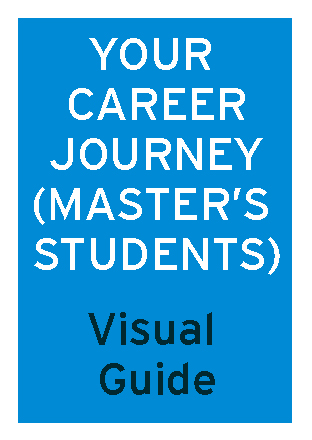Developing your skills
During your time at university, you will find lots of opportunities to develop your skills through your studies and extra-curricular activities. Having a range of demonstrable skills improves your chances of securing employment or further study, and also helps you have a confident and capable approach to many situations in life.
Not sure what career would suit you? Use Prospects Career Planner to match your skills, motivations and desires to a career that's perfect for you. To get even more from your results, take them to your University or College career adviser.
Or uncover your skillset with Build My Career.
Get involved with Careers programmes
We're looking for students to take part in our HEAR-recognised programmes designed to develop your personal and professional skills:
How do I develop my employability skills?
You’ll already have lots of skills: as a student; you’ve adapted to new situations; communicated with your lecturers and fellow students; worked in or led teams; planned and organised your assignments; and much more. Here are some suggestions on how you can build on these skills to increase your employability and stand out from the crowd as a University of Bradford student:
- the HEAR activities and achievements - all undergraduate or postgraduate taught students will now have access to their Higher Education Achievement Report (also known as the HEAR). There are a number of University-endorsed activities to get involved with, and you can document your experiences and prove to employers that you have the skills they are looking for.
- working part-time which gives you the opportunity to earn extra money, enhance your CV, and improve your employability skills and prospects beyond university. It also offers the chance to meet new people and have a different social experience outside the university environment.
- volunteering - a great way to develop your employability skills and impress employers. As well as gaining experience, it’s also an opportunity to network, build your contacts and it may even lead to paid work.
- joining a club or society is another way of building up your employability skills, particularly if you take on positions of responsibility such as president, secretary, team captain, student representative or treasurer. Joining in also shows that you are reliable, committed and trustworthy. You can find a list of societies and sports clubs on the University of Bradford Student’s Union website.
- study or work placements abroad - there are great opportunities to develop your skills and knowledge in another country through the University (which are usually fully funded), whether it be in Europe with an Erasmus scheme or elsewhere in the world. You could also check out Goinglobal for more ideas.
- taking a year out - Some graduates decide to take time out after university. If you plan your time effectively, decide on your objectives and spend your time out productively it can be a good way of improving your employability for when you do decide to enter the job market.
Check out the Your Career Journey PDF below to see when opportunities to develop your skills are available throughout each academic year.
See also our individual skills pages on the menu below for more suggestions on how to gain specific skills.
Your Career Journey (Master's students)
A guide to opportunities available throughout your time as a Master's student.

If you require this information in an alternative format, please contact our team. You can also read our Website Accessibility Statement.
When should I start thinking about my career?
In today’s job market, employers are looking for more than just a good degree grade, so you should take steps to improve your knowledge and skills to stand out from the crowd. It’s never too early to start thinking about what you want to do, here is our year-by-year guide:
First year
- Develop your employability skills and experience by working part-time, volunteering, joining a club or society.
- Call into Careers to get your CV checked.
- Attend our Employability Workshops and Careers Fairs.
- Apply for our Summer Experience programme.
- Explore study options and internships abroad, and short international programmes (e.g. Study in China). Speak to our International Opportunities team.
Middle years
- Keep working on your skills.
- Research your career options.
- Do a placement year in industry.
- Attend our Employability Workshops and Careers Fairs.
- Update your CV.
- Apply for Summer Experience and external summer internships.
- Go abroad for study or internships (sandwich year or summer break) and short international programmes. Speak to our International Opportunities team.
Final year
- Apply for vacancies.
- Consider postgraduate study.
- Attend our Employability Workshops and Careers Fairs.
- Make an appointment with a career consultant to explore your career options, get help with applications, refine your CV and practice your interview technique.
- Go abroad - explore research options, graduate internships and more. Speak to our International Opportunities team.
At any point during your studies (and afterwards), you can come to speak a career consultant to discuss your options, and you could also try Prospects Career Planner to match your skills, motivations and desires to a career that's perfect for you or the National Careers Service skills health check and discover your skills and careers quizzes.
You can also check our options with your degree and Labour Market Information pages to help you get an idea of the current and future jobs market.
MOOCs (Massive Open Online Courses)
MOOCs are an inexpensive and flexible way to develop additional skills which you might need for your future career. These courses are usually in conjunction with universities and industry professionals, and are designed to help top up your skills and knowledge in a specific area.
Be aware that while some courses are free, there may be some fees for ongoing subscriptions, so make sure you read the terms and conditions when you register.
MOOC providers include:
Preparing for work was developed by the British Council for international graduates of UK Higher Education entering into, or returning to, the employment market, globally.
- The National Careers Service also provide a series of online courses with their Skills Toolkit, featuring maths, IT skills, coding, business and finance and more.
- IBM SkillsBuild is a free digital platform to give you the opportunity to develop technology and professional skills regardless of your background, education, or life experiences.
Employability at the University of Bradford
One of our goals in Career and Employability Services (and the University as a whole) is to equip all our students with the attributes and capabilities to be confident and capable in your life beyond uni.
Whether you choose further study, employment, entrepreneurship or any another avenue, these fundamental skills will help you to thrive and portray a positive and professional image.
Below are listed the graduate capabilities and attributes and their related employability skills - click through to find out more, including how to gain and demonstrate these to employers.
Employability and Professionalism
The Bradford Graduate is:
Aware of their own capabilities and able to manage themselves
Proficient at communicating with others through a range of media.
Effective at collaborating and respecting the opinions of others
Able to demonstrate appropriate professional values.
Able to identify their learning needs and take action to improve their performance
Able to demonstrate commercial awareness by relating their learning to a commercial or business perspective
Academic Development and Critical Thinking
The Bradford Graduate is:
Able to apply knowledge to solve complex real-world problems and show proficiency and creativity in decision making
An independent learner and a critical and creative thinker.
Skilled in research and enquiry.
Inclusivity
The Bradford Graduate is:
Interculturally and internationally aware.
Aware of social and civic responsibilities.
Literate in sustainability

